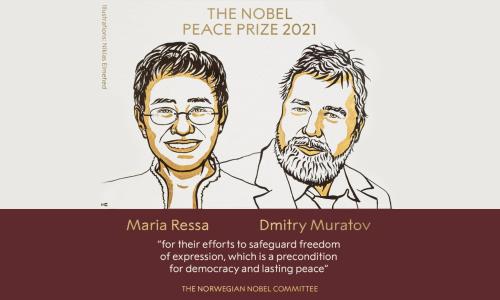COMMENT | Public-interest journalism losing to identity politics
COMMENT | Six months after journalists Maria Ressa and Dmitry Muratov were honoured with the Nobel Peace Prize, little of the celebratory mood remains.
Ressa’s Philippines is deep in an election season marred by all the dysfunctions independent media like hers have been trying to combat: industrial-scale disinformation and hate speech, patronage politics dominated by oligarchs and other elites, and the appeal of charismatic personalities over human rights.
Muratov’s Russia, meanwhile, has gone to war against its neighbour and made domestic dissent so dangerous that he has suspended the publication of his newspaper Novaya Gazeta even as pro-regime television news churns out war propaganda.
Such ups and downs are emblematic of the global situation since the last World Press Freedom Day. Over the past year, print and digital media have produced plenty of exemplary journalism, but the overall picture has grown even grimmer.
Take India. Once considered the world’s largest democracy, it has been relegated to "electoral autocracy" status. Its independent media still survive, and its citizens are still able to foil the state occasionally - see the massive farmer protests.
But nothing has been able to reverse India’s descent into orchestrated, systemic majoritarian hate.
This mixed state of affairs is partly due to the fact that press freedom is a...
RM12.50 / month
- Unlimited access to award-winning journalism
- Comment and share your opinions on all our articles
- Gift interesting stories to your friends
- Tax deductable
